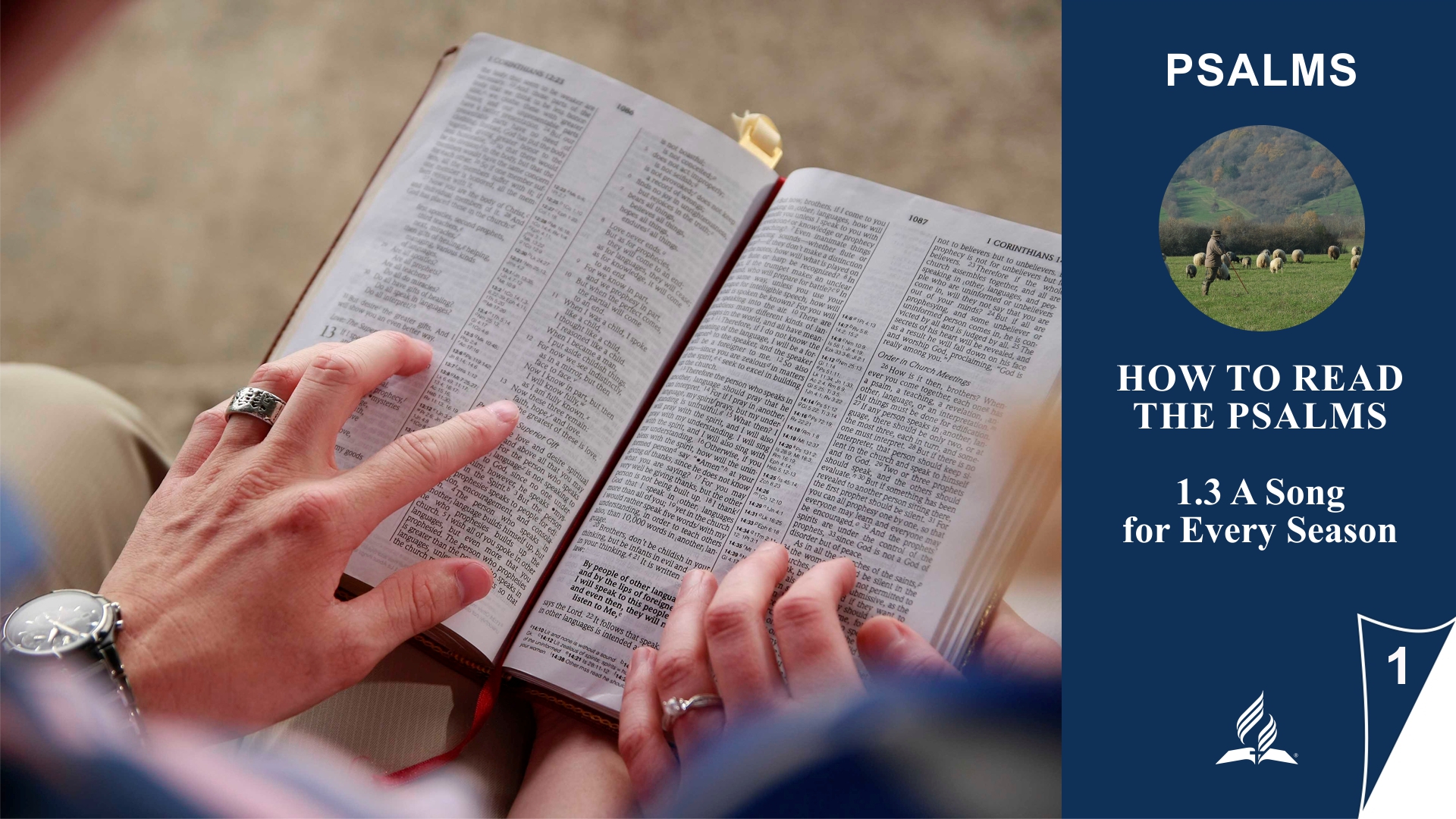

1.3 A Song for Every Season
Read Psalm 3; 33:1–3; and 109:6–15. What different facets of human experience are contained in these Psalms?
Here are the specified Psalms with a brief summary of the various facets of human experience found in them:
-
Psalm 3:
-
Lament Psalm: The psalmist laments about enemies and challenging circumstances. Despite threats and challenges, he trusts that God is his shield and deliverer. The psalm reflects the human experience of fear and uncertainty but also the hope and trust in God’s protection.
-
-
Psalm 33:1–3:
-
Hymn: This psalm is a hymn praising God for His majesty, power, and faithfulness. It expresses joy, praise, and gratitude. Here, we see facets of worship and gratitude in human experiences inspired by God’s greatness.
-
-
Psalm 109:6–15:
-
Lament Psalm: The author laments evil accusers and implores God for help and justice. Feelings of injustice and oppression are expressed. This psalm portrays the human experience of suffering, injustice, and the plea for God’s intervention.
-
These Psalms, as these three examples show, encompass a wide range of human experiences. They range from lament and distress to joy and gratitude, worship, and the quest for God’s justice. This diversity reflects the reality of human life and demonstrates that we can approach God in all facets of our existence—whether in times of joy or sorrow, praise or lament. Through the various genres and poetic devices of the Psalms, the breadth of human experience is expressed powerfully and inspiringly.
Indeed, the Psalms are a fascinating collection that captures the entire spectrum of human experiences. Here are some additional considerations on the various genres and poetic devices in the Psalms:
-
Hymns:
-
Psalms categorized as hymns praise God for His majesty, power, and creation. They express worship, celebrating God’s reign and faithfulness. Examples include Psalms 8, 19, and 104.
-
-
Thanksgiving Psalms:
-
Psalms of thanksgiving express deep gratitude for God’s blessings, acknowledging His goodness and faithfulness. Psalm 103 is an outstanding example of a thanksgiving psalm.
-
-
Lament Psalms:
-
Lament psalms are honest expressions of pain, suffering, and the need for deliverance. The psalmist pleads to God for help and comfort. Psalms 22 and 69 are well-known examples of lament psalms.
-
-
Wisdom Psalms:
-
Wisdom psalms provide practical guidelines for righteous living. They emphasize God’s wisdom and the importance of living according to His commandments. An example is Psalm 1.
-
-
Royal Psalms:
-
Royal psalms point to Christ as the sovereign King and Savior of God’s people. Psalms 2 and 110 are messianic royal psalms applied to Jesus Christ in the New Testament.
-
-
Historical Psalms:
-
Historical psalms recall Israel’s past, highlighting God’s faithfulness and Israel’s unfaithfulness. Psalm 78 is an example that illuminates Israel’s history through God’s actions.
-
Regarding poetic devices:
-
Parallelism: This literary device, frequently used in the Psalms, helps to understand meaning through symmetrical structures, emphasizing the power of words and enhancing poetic effect.
-
Imagery: The imagery in the Psalms employs metaphorical representations to convey spiritual truths. Describing God as a refuge in the shadow of His wings (Psalm 17:8) is an example of such imagery.
-
Merism: The use of merism emphasizes totality by combining contrasting parts. Crying day and night before God (Psalm 88:2) illustrates ongoing distress and dependence.
-
Wordplay: The Psalms utilize wordplay to highlight spiritual messages. In Psalm 96:4–5, wordplay between the Hebrew words for “gods” and “idols” is used to convey an important message.
-
Selah: The word “selah” serves as an invitation to pause and reflect on the psalm’s message or marks a change in musical accompaniment, fostering emotional depth and reflection.
The diversity of genres and poetic devices in the Psalms makes them a profound and multifaceted expression of human spirituality and relationship with God.
Visited 46 times, 1 visit(s) today






